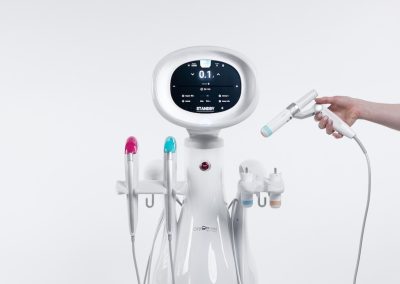In the world of health today we have a host of supplements available to us. These range from full meal replacements to specific herbs and probiotics. In today’s society, the majority of adults take some form of supplement. Common examples are fish oil for arthritis, a daily multivitamin, protein supplements or pre and post workouts.
People often ask me ‘should I supplement?’
This topic can be a rather controversial one. This is due to varied science, quality of products, beliefs and marketing strategies. Personally, I choose to supplement my diet, but acknowledge it isn’t what others like to do.
So, should you supplement?
Scientific evidence has shown that some dietary supplements are beneficial for overall health.
Also some supplements can assist to manage specific health conditions. Examples of this consist of calcium and vitamin D for keeping bones strong and reducing the risk of osteoporosis. Folic acid assists to decreases the risk of some birth defects and omega-3’s may help those with heart disease. Some supplements potentially help reduce discomfort caused by certain drugs or conditions. Alternatively, there are products that simply assist with feeling better and improve quality of life.
The majority of people can use dietary supplements safely within certain dosage guidelines. Supplements are more likely to cause side effects or adverse reactions when people take them instead of prescribed medicines. Other issues may occur when many products are used in combination that haven’t been tested together.
It is also important not to rely solely on supplements. They should not replace a healthy diet as other important aspects of a balanced diet may be left out. This includes nutrients such as dietary fibre and other protective substances including phytochemicals and antioxidants.
In respect to protein supplements, many studies have concluded that higher protein diets can assist with increased metabolism, reduced fat mass and increased lean muscle mass. Always use products that have natural ingredients and added vitamins and minerals if your diet is generally poor. Be aware however, of cheap protein powders that have inferior protein, fillers and low quality ingredients.
For me personally, I choose to supplement to fill the gaps in my nutrition and ensure I am getting all the nutrients I need. Plus, I find supplementing helps with my energy, mental clarity and overall wellbeing. In the industry I am in, I also value the benefit supplements can have on performance and improving the results from training sessions, along with recovery. Above all, it is also super convenient when living a busy lifestyle and assists with reducing cravings and eating less healthy foods regularly.
Recommendations
To ensure you are safely using supplements:
1. Make sure to take high quality supplements at the scientific recommended dosage.
2. Use a multivitamin, as side effects are smaller compared to the risk from single ingredient supplements.
3. Take with food (unless otherwise instructed) as macronutrients work and benefit the cells in combination with micronutrients which act as catalysts or activators of physiological processes.
4. Stay at a lower dose (half or at a third of the total recommended dosage) initially, and then gradually increase the dose until the full recommended daily dose according to the supplement product label.
5. If you have any health conditions or are on medication, check with your doctor first.
If you tend to have a well balanced healthy diet and feel vibrant, energetic and generally well, supplementation may not be something you need or want to do.
However, if you have a poor diet, are stressed, fatigued, struggling daily or want to achieve specific performance goals, supplements may be beneficial to you.
Written by Bec Kurtz – Inspiring Balance and Health













0 Comments